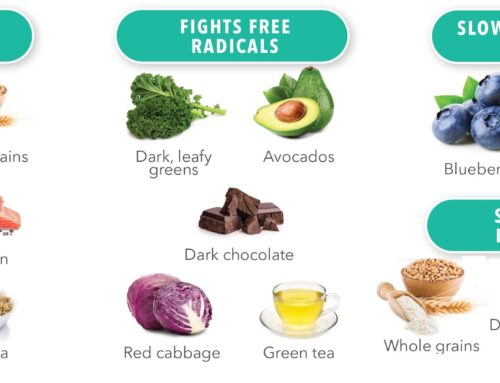Article courtesy of Juliette Frank for Emeran Mayer, MD
According to the International Food Information Council, more than half of all Americans followed a diet in the past year, mainly with the goal to lose weight. The diet industry rakes in a collective 33 billion dollars every year from consumers in the U.S. yet, only 20% of dieters are predicted to keep off their lost weight for 12 months. There are many reasons why people choose to go on a diet or restrict what they are eating. Most commonly, the main goal is to lose weight and/or treat a medical condition. The nature of restriction that most diets require can make them difficult to sustain for long periods. Over the years, many of the most popular diets have been “fad” diets that rise in popularity for a short time and spread pseudoscientific claims for fat loss which can be harmful and even threaten your health such as the Cigarette Diet in the 1920s to the Baby Food Diet in the 2000s. The U.S. News & World Report revealed their ranking of the overall best diets for 2023 based on healthiness, safety, ease of following and promoting a healthy, sustainable lifestyle. A panel of medical and nutrition experts specializing in diabetes, weight loss and heart health ranked a total of 24 diets with an overall weight loss score, a health score and an overall score out of 5 points.
“The Mediterranean diet is a great option for anyone looking to improve their health, lose weight and maintain a sustainable, healthy lifestyle.”
The best ranked diet overall is the Mediterranean Diet which received a 4.2 in overall weight loss, a 4.6 in healthiness and a 4.6 overall score. The Mediterranean diet is based on the traditional way of eating in the countries bordering the Mediterranean Sea including Greece, Italy, Lebanon, Turkey and many others. This diet contains mainly plant-based foods such as fruits and vegetables while incorporating whole grains, nuts and seeds, beans, seafood, and lean poultry. Instead of focusing on a single food group, the main focus of this diet is the quality of ingredients and making sure there’s plenty of nutrient-rich foods being consumed regularly. Many studies have shown that this simple but effective dietary model reduces the risk of certain chronic health conditions, such as cardiovascular disease, type 2 diabetes and cognitive decline while promoting longer lifespans and higher quality of life. The Mediterranean diet checks a lot of boxes when it comes to ease and overall benefits including being family-friendly, budget-friendly, planet-friendly, and is easily modifiable for those with all kinds of dietary restrictions such as vegan, vegetarian, kosher, halal and low-fat. There is no counting calories or carbs, no off-limit foods or food groups and due to its variability and lack of strict guidelines, this diet is diverse in food and flavor and nutritionally sufficient. The Mediterranean diet may not have the fastest weight loss results compared with other more restrictive diets, but it has proven highly successful for weight maintenance due to it being easy to follow and provides good satiety. Overall, the Mediterranean diet is a great option for anyone who loves food, and who is looking to improve their health, lose weight and maintain a sustainable, healthy lifestyle. Some even say it is a way of life just as much as it is a way of eating due to the element of mindful eating and seasonal produce.
“The DASH diet has been shown to dramatically decrease blood pressure, promote weight loss, prevent cancer, improve kidney health, and encourage better blood sugar control.”
The second healthiest diet overall is the DASH Diet which received a 4.4 in overall weight loss, a 4.5 in healthiness and a 4.2 overall score. The DASH diet which stands for Dietary Approaches to Stop Hypertension, is a flexible, balanced and heart-healthy eating plan promoted by the National Heart, Lung and Blood Institute to do exactly that: to stop or prevent hypertension, also referred to as high blood pressure. The DASH diet focuses on consuming blood-pressure reducing nutrients such as calcium, potassium, magnesium and fiber through fruits and vegetables, whole grains, lean protein and low-fat dairy. DASH limits foods high in saturated fat such as fatty meats, full-fat dairy foods, tropical oils and sweetened beverages and caps sodium at 2,300 milligrams daily, which followers will often lower to about 1,500 milligrams. This is similar to the Mediterranean diet except DASH gives more specific quantity recommendations and puts limits on certain food types. The DASH diet has been determined to dramatically decrease blood pressure, promote weight loss, prevent cancer, improve kidney health and encourage better blood sugar control.
“The Flexitarian diet is largely plant-based with an emphasis on fruits and vegetables, whole grains, eggs, meat alternatives and non-dairy milk.”
Tied with the DASH Diet for second overall is the Flexitarian diet which received a 4.2 in overall weight loss, a 4.3 in healthiness and a 4.4 overall score. The Flexitarian diet is largely plant-based with an emphasis on fruits and vegetables, whole grains, eggs, meat alternatives and non-dairy milk. Depending on dietary restrictions, this diet limits or completely cuts out red meat, chicken, turkey and pork, processed foods, white rice, pasta and bread and added sugars. Since this diet is similar to both the Mediterranean and DASH diets, there are many overlapping health benefits.
“This diet is designed to prevent dementia and loss of brain function that often comes with aging and focuses on 10 brain-healthy food groups while limiting consumption of five unhealthy categories.”
The fourth ranked diet is the MIND Diet which stands for Mediterranean-DASH Intervention for Neurodegenerative Delay and received a 3.5 in overall weight loss, a 4 in healthiness and a 4.3 overall score. This diet is designed to prevent dementia and loss of brain function that often comes with aging and focuses on 10 brain-healthy food groups while limiting consumption of five unhealthy categories. The diet recommends eating green leafy vegetables, all other vegetables, nuts, berries, beans, whole grains, fish, poultry, olive oil, wine (optional) while reducing or limiting consumption of red meats, butter and margarine, cheeses, pastries and sweets and fried or fast food. There are no specific quantities set for this diet, the main focus is to consume brain-healthy foods and limit consumption of foods from the 5 unhealthy categories listed above.
“The clear commonality between the top ranked diets is the focus on a high consumption of a diverse range of fruits and vegetables, whole grains, beans, olive oil, seafood and lean poultry while limiting red meat, animal fat, highly processed foods and added sugars.”
Some of the next best diets ranked amongst the total 24 include the TLC Diet, the Mayo Clinic Diet, the Volumetrics Diet and the Weightwatchers Diet.
The clear commonality between all the top ranked diets is the focus on a high consumption of a diverse range of fruits and vegetables, whole grains, beans, olive oil, seafood and lean poultry while limiting red meat, animal fat, highly processed foods and added sugars. Not only are there a multitude of proven health benefits to following this way of eating, diets like the Mediterranean also provide flexibility and satiety unlike many highly restrictive ones. The common issue of being hungry while dieting is solved by the high quantity of fiber-filled foods included in these healthy diets which keeps you full and feeling satisfied. There’s also no calorie, carb or point counting which can take away the enjoyment from a meal and make it difficult to enjoy eating with friends and family or dining out. Due to the lack of strict guidelines, there is room to indulge every so often with some wine, deserts and other foods, these diets don’t recommend eating on a daily basis in order to make them sustainable, enjoyable ways of life.
“All of the top ranked diets are not only meant to be easy to follow for everyone but realistic to sustain for long periods of time as a lifestyle or way of eating.”
Whether the goal is to lose weight, treat a medical condition or just to improve overall health and wellbeing, the main takeaway from this ranking is to make sure to consume a variety of nutrient-rich foods on the daily while trying to limit foods with added sugars and saturated fats. All of the top ranked diets are not only meant to be easy to follow for everyone but realistic to sustain for long periods of time as a lifestyle or way of eating.
And let’s not forget, all the top ranked diet are not only good for the gut microbial ecosystem and for a reduction of our chronic non-communicable disease epidemic, but they contribute in a major way to the health of the environment and the planet.



